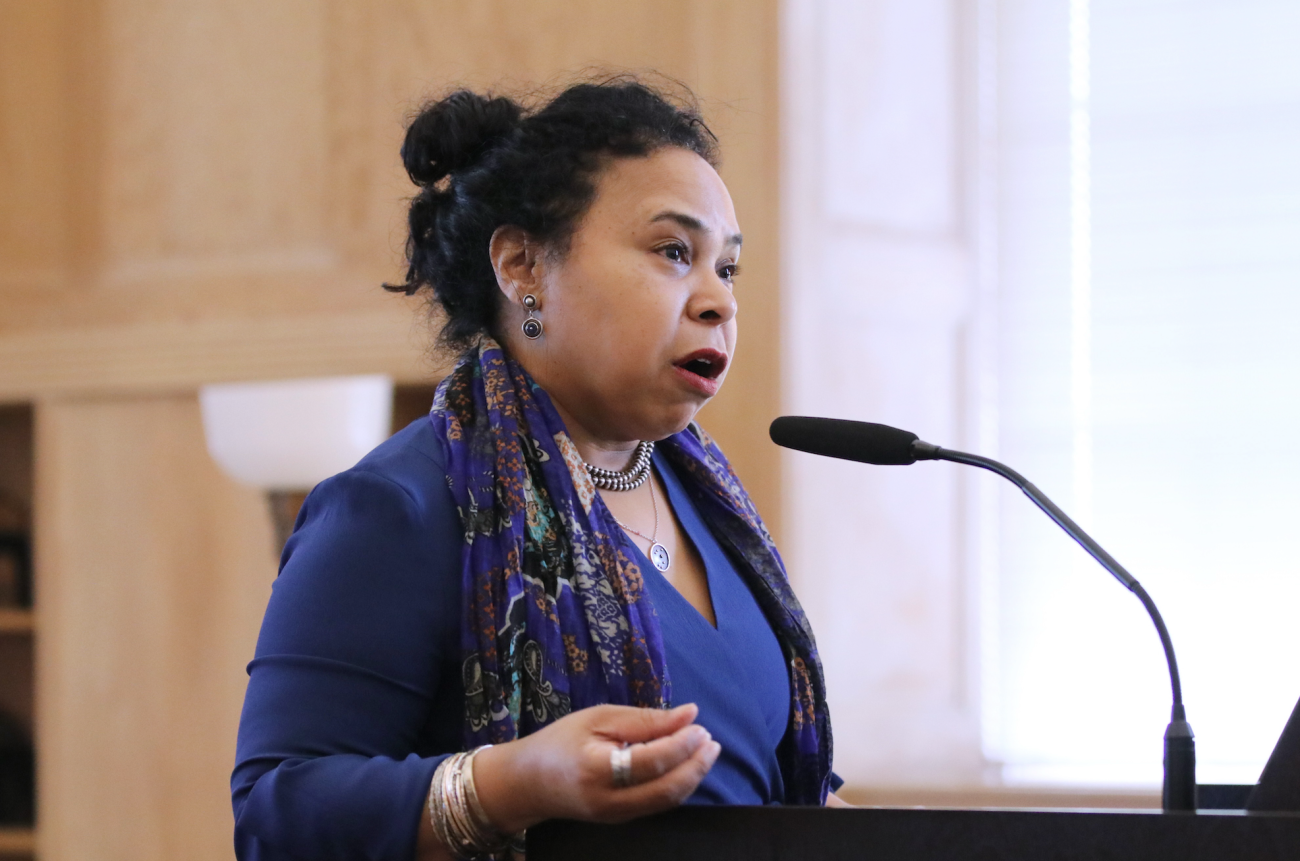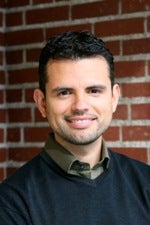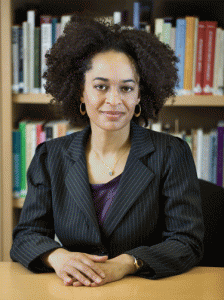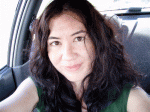
The Women of Color (WOC) Project has been a special project under the auspices of CSWS since 2005. The program is comprised of tenure-track women faculty who represent all the colleges and schools within the UO.
The group was initially formed to foster WOC in leadership positions in UO administration. It evolved over the years as a vital research, mentoring, and support network for WOC faculty who often find that they are the only one of their kind in their academic units and seek both mentorship and community from fellow colleagues. We have also functioned, informally, as a clearing-house for archiving the particular structural and interpersonal challenges that WOC face in their research, teaching, and service in a predominantly white University. This makes us a very valuable partner in the University’s diversity, recruitment, and retention initiatives. We have frequently advocated for colleagues facing issues of climate and disenfranchisement by partnering with other units such as CoDaC and DEI.
More broadly, we have been able to bring attention to the unduly (and largely uncompensated) service tax that WOC faculty face in order to support the University’s efforts to promote diversity as a hallmark of its excellence. This severely hampers the ability of WOC to maintain a brisk pace in their research trajectory and be promoted on time. It also affects rate of tenure of WOC faculty as well as retention. Thus in 2016, we approached the University Administration with our concerns and requested that they not only audit these special challenges faced by WOC and make institutional changes to address them but also make supporting the research agendas of WOC a priority so enhance rates of tenure, promotion, and retention.
Since then, the WOC Project has received funding from the Office of the Provost, CSWS, and other partner units on campus to support research and professional development programming for WOC faculty on campus.WOC Affiliates
Beginnings
The WOC Project started in 2005 as a CSWS Research Interest Group. In 2008, the center was awarded a Ford Foundation grant from the National Council for Research on Women (NCRW) to promote a leadership pipeline for Women of Color at universities. “Diversifying the Leadership of Women’s Research Centers” was meant to promote the leadership of women of color from historically underrepresented groups in the United States within NCRW and within its women’s research, policy, and advocacy member centers. CSWS and the UO Office of the Vice President for Research provided matching funds to launch the initiative.
The WOC Project was first headed by Professor Lynn Fujiwara, who was one among a very small group of tenured WOC faculty at UO at the time. “The project specifically designed for CSWS was to address the current and historical absence of women of color in leadership positions at the center,” said Fujiwara.
From 2008-2016, the WOC Project developed under the leadership of Fujiwara, Lamia Karim, Gabriela Martinez, and Sangita Gopal, who all served as Associate Directors of CSWS. After the center restructured staffing in 2016, CSWS no longer had an Associate Director position so there was no one to manage the WOC project. “This was disappointing news since we had worked so hard to develop this cohort and it had served such a crucial role in research, promotion, and retention by WOC on campus,” said Gopal. The group approached President Schill to discuss the future of the special project, and in 2017 they received funding from the Office of the Provost and other campus units to continue their mission in partnership with CSWS.
Programs
Currently, the WOC Project includes the following programs:
- small grants for individual projects and events across departments and schools,
- research workshops for assistant and associate professors to finish up their research portfolio or to jumpstart their pipeline for post-tenure research,
- grant-writing workshops with expert consultants to workshop grant proposals for faculty wishing to submit applications to outside grants, and
- a fellowship competition that provides summer support to complete research projects that will have immediately measurable impacts.
“As our cohort repeatedly testifies,” says former WOC Project coordinator Sangita Gopal, cinema studies, “the value of the project lies not only in the concrete mentoring and professional support that we provide, which can be measured in terms of impact but also in the very real benefits such an intergenerational, interdisciplinary network offers its members. These range from providing feedback on research, a safe space for discussing challenges faced by WOC, a forum for discussing how we may better support UO’s goals for equity, diversity and inclusion based on our varied and cross-disciplinary experiences.”
Gopal says that the community they have built is a sustaining one and “all of us feels very committed to it.” Lynn Fujiwara, ethnic studies, in a sentiment widely shared by others associated with the project, notes that the work WOC does plays a crucial role in retention. Priscilla Ovalle, cinema studies, feels it is only a project such as this that allows her to connect with colleagues across disciplines and offers a broad intersection of all experiences and challenges across all units as well as how to address these challenges in teaching, research and departmental life.
“This community is well known and as the convener,” Gopal says, “I am often contacted by candidates who are being recruited by the University hoping to learn more about what we do and the resources we offer. We have also been sought out by graduate and undergraduate WOC who want to emulate us and be mentored by us as they build their own networks for professional success. This role-modelling is very exciting to hear indeed and measure of our critical impact.”
People
List of WOC Faculty Affiliates
Professor Michelle McKinley is the 2025-26 WOC Project convenor.
McKinley is the Bernard B. Kliks Professor of Law at the University of Oregon Law School and former director for the Center for the Study of Women in Society. McKinley has taught on the faculties of the University of Hawai’i, Universidad de los Andes, University of Kansas, Universidad Nacional Mayor de San Marcos, and Princeton University. She teaches in the areas of Public International Law and feminist studies. Professor McKinley attended Harvard Law School, where she was Executive Editor of the Harvard Human Rights Journal and graduated cum laude in 1995. Professor McKinley also holds a Masters Degree in Social Anthropology from Oxford University.
McKinley has extensively published work on public international law, Latin American legal history, and the law of slavery. Her monograph, Fractional Freedoms: Slavery, Intimacy and Legal Mobilization in Colonial Lima, 1600-1700 was published by Cambridge University Press in 2016. The monograph examines enslaved women in colonial Lima who used ecclesiastical and civil courts to litigate their claims to liberty. Fractional Freedoms received the 2017 Judy Ewell prize for best work in women’s history from RMCLAS, and an honorary mention for the best work in sociolegal history from the Law and Society Association.
Testimonials
“The WOC research workshop was instrumental in helping me revise my manuscript proposal. Since then, I have shared the proposal with numerous editors interested in publishing my research.” (Isabel Millan, Women’s, Gender and Sexuality Studies)
“Not only did this workshop connect me to other junior faculty on campus, but it connected me to a leading scholar in my field, a relationship that I have since sustained this relationship. Further, this workshop gave me essential writing skills, including the ability to streamline my argument, elicit feedback, and incorporate revisions in preparation for publication.” (Leilani Sabzalian, School of Education)
“Riley Snorton's feedback, as well as the feedback of my UO colleagues, enabled me to develop an understanding of the interventions in my book Streetwalkers: LGBT Lives and Protest in the Dominican Republic, and of what is missing in my framing of this book. I had received reader feedback on the book (it was reviewed at Rutger's Press); all of the readers agreed that my introduction did not do enough to frame the interventions of the book or to frame it. Receiving this feedback helped me understand the problems of this chapter, and how to best address them.” (Ana Lara, Anthropology and Women’s, Gender and Sexuality Studies)
“The WOC workshop last spring has been pivotal in laying the groundwork for my next book project. It provided me with a deadline to put together a draft proposal which I then subsequently revised and submitted to three external fellowships/grant applications in the Fall and Winter.” (Kemi Balogun, Sociology and Women’s, Gender and Sexuality Studies)
“The external reviewer and my fellow UO colleagues provided astute and constructive comments that allowed me to reorganize the book chapters and the book manuscript's scope. After this workshop, I rewrote the introduction and revised the book proposal for the publisher who still expressed interest in the project.” (Jina Kim, East Asian Language and Literature)
“My participation in the spring 2019 workshop directly led to my receipt of the 2019-20 UO Presidential Humanities Fellowship, for which I would not have even applied if it had not been for the encouragement of this group and the support of this workshop.” (Sharon Luk, Indigenous, Race and Ethnic Studies)
“The workshop was instrumental in helping me launch my book project” (Lynn Fujiwara, Indigenous, Race and Ethnic Studies)
“The feedback that I received, both from colleagues at the workshop and from the specialist that was Skyped in, gave me the confidence to push out the first publication from that project (which was published about a year after the workshop).” (Priscilla Ovalle, Cinema Studies)
“The article I worked on there is currently being revised for publication.” (Cecilia Enjuto Rangel, Romance Languages)
“My session with my peer reviewer Todd Cronan helped me restructure the introduction of my book manuscript, The Persistence of Masks: The Vicissitude of the Subject in Surrealist Aesthetic Theories and Ethnography.” (Joyce Cheng, Art History)
Intersectionality
In April 1974 the Combahee River Collective articulated in their “Black Feminist Statement” that the struggle against oppression must be understood in terms of intersecting forces of race, class, gender, and sexuality. The multiracial feminist movement that put forth this notion of intersectionality challenged universal notions of “woman,” and as a result developed a political momentum that has reshaped feminist thinking, politics, and organizing, challenging feminists to also consider how religion, nationality, ability, and age intersect in women’s everyday lives. Today, intersectionality has become a primary theoretical and methodological approach that has pushed feminist projects to embrace complex social relations and expressions of power. Intersectionality spans disciplinary boundaries, puts different types of scholars in direct conversation, and continues to challenge feminists to understand oppression relationally rather than hierarchically and universally.
“Centering Intersectionality,” a main component within CSWS’s Women of Color Project, highlights the significance and importance of interdisciplinary, intersectional work that continues to push feminist scholarship and research beyond simplistic binaries and arguments. Working off the foundation this project established during 2008-2009, we wish to continue building within CSWS a community of scholars invested in research that analyzes the intersections of race, class, gender, ethnicity, sexuality, ability, citizenship, nationality, religion, and age.
Going Global
 Global Feminist Connections (GFC) is a project that takes the intersectionality framework to bring women’s global lives into the center of CSWS’s research projects. The challenge facing feminist scholars in the 21st century is the complex lived realities of women’s lives.
Global Feminist Connections (GFC) is a project that takes the intersectionality framework to bring women’s global lives into the center of CSWS’s research projects. The challenge facing feminist scholars in the 21st century is the complex lived realities of women’s lives.
The GFC aims to facilitate scholarship that broadens understanding and cooperation between U.S.-based scholars and scholars in the developing south. Toward that end, GFC seeks to establish institutional links with feminist research centers in the global south that would create possibilities for collaborative research and exchanges between our faculty and theirs. We expect to create an environment of feminist scholarship that would create critical awareness of our interconnected lives in the 21st century, and lead to a richer body of feminist thought.
Archives
2011 Report to the National Council for Research on Women (NCRW): Center for the Study of Women in Society, University of Oregon: Women of Color, Borders, and Power: Mentoring and Leadership
2010 CSWS Annual Review: see “The Women of Color Project.”
2009 CSWS Annual Review: see “Promoting and Diversifying Leadership,” by Lynn Fujiwara, Associate Professor, Women’s and Gender Studies—The Women of Color Junior Faculty Project aims to diversify leadership at CSWS.
Report for 2011-12
This year, the energies of the Women of Color Project focused on the professional development of junior faculty by hosting two works-in-progress events. In the fall, historian Melissa Stuckey presented a chapter of her manuscript on the racial politics of Boley, an all-black town in Oklahoma. In winter, faculty from across campus provided feedback for Rocio Zambrana, an assistant professor of philosophy, who wrote an essay on “Critical Theory in a Neo-Liberal Age.”
During the winter quarter, members of the WOC Project began to develop a collaborative project that will result in a published volume about the experiences of women of color in the academy. Tentatively titled “Women of Color in the Academy: Critical Perspectives and Interventions,” this research project furthers the objectives of the CSWS Women of Color Project. The volume will explore the issues that women of color encounter in the academy and the ingenuity and collective effort it takes to stay and succeed at predominantly white universities like the University of Oregon.
Charise Cheney, associate professor, UO Department of Ethnic Studies, served as the 2011-2012 coordinator of the CSWS Women of Color Project. Cheney’s research interests include African-American popular and political cultures, black nationalist ideologies and practices, and gender and sexuality. She is the author of Brothers Gonna Work It Out: Sexual Politics in the Golden Age of Rap Nationalism (New York: New York University Press, 2005) and is currently working on a book about black resistance to school desegregation in Topeka, Kansas in the decade before Brown v Board of Education of Topeka, Kansas. She earned her PhD at the University of Illinois, Champaign-Urbana.
Women of Color Project Faculty Event Funding 2010-2011
During 2010-2011, the CSWS Women of Color Project will continue its work of institutionalizing diversity at the University of Oregon. Given the fact that the cohort of women of color faculty is small and tends to be more junior, we are providing research-related institutional funding (e.g. speakers, workshops, symposia, conferences, etc.) for this cohort in the coming year, particularly to support their own efforts within and across their departments and schools. Not only will this allow faculty members to develop mentoring networks that may not be otherwise possible at UO and to invite speakers and plan events related to their research areas and interests, it has the added benefit of promoting events concerning diversity campus-wide.
The funding is made possible by support from the offices of the Senior Vice Provost for Academic Affairs and the Vice President for Research and Graduate Studies.
Women of color faculty may submit applications for funding up to $1,000 that describe the relevance of their request to research on race and gender. WOC co-coordinators Lynn Fujiwara and Lamia Karim will review applications, and funding will be distributed on a first-come basis.
2009-2010 Events
Friday, November 20, 2009: Book Proposal Workshop Noon to 2 p.m.
 This faculty workshop features Ernesto Martínez’s book, Queer Race Narratives: On the Practice and Politics of Intelligibility Noon to 2 p.m. 330 Hendricks Hall, Jane Grant Conference Room
This faculty workshop features Ernesto Martínez’s book, Queer Race Narratives: On the Practice and Politics of Intelligibility Noon to 2 p.m. 330 Hendricks Hall, Jane Grant Conference RoomErnesto Martínez is an assistant professor in the UO Department of Women’s and Gender Studies. His book-in-progress, Queer Race Narratives, “turns to the literature and cultural production of gays and lesbians of color in the United States in order to answer some important questions in contemporary social theory regarding the nature of knowledge acquisition and knowledge production in oppressive contexts. Specifically, this book traces discourses of intelligibility, recurring preoccupations with the labor of making sense of oneself and of making sense to others in contexts of intense ideological violence and interpersonal conflict.”
Thursday, February 4, 2010: Gina Dent, “Transforming Feminisms”
Thursday, March 4, 2010: Film Showing—3 p.m. to 5 p.m. in the EMU Ballroom
From the Finding Face website: “‘Finding Face’ details the controversial case of Tat Marina, who was attacked with acid in Cambodia in 1999. At 16, Marina was a rising star in Phnom Penh’s karaoke music scene. She was coerced into an abusive relationship with Cambodia’s Undersecretary of State, Svay Sitha, and subsequently doused with a liter of  nitric acid—allegedly by his wife—that disfigured her face. A decade later, despite the fact that there were multiple witnesses to the crime, no charges have ever been filed in the case.”
nitric acid—allegedly by his wife—that disfigured her face. A decade later, despite the fact that there were multiple witnesses to the crime, no charges have ever been filed in the case.”
An associate professor of Women’s Studies at Oregon State University, Patti Duncan specializes in transnational feminist theories and movements, women of color in the United States, and Asian and Asian Pacific American women's writings and experiences. She is the author of Tell This Silence: Asian American Women Writers and the Politics of Speech (University of Iowa Press, 2004).
Friday, May 21, 2010: 10 a.m. to 12:00 p.m.— in McKenzie Hall, room 125 “Gendered States: Rethinking Culture as a Site of South Asian Human Rights Work”
This lecture by Kamala Visweswaran explores the place of culture in debates about women’s rights in South Asia. In particular, it explores the nexus between human rights reporting on South Asia, feminist legal theory and gender asylum testimony.
Friday, May 21, 2010: A Faculty Seminar with Kamala Visweswaran

Educated at Stanford University and U.C. Berkeley, Kamala Visweswaran is an associate professor in Anthropology, Asian Studies and the South Asia Institute at the University of Texas, Austin. Her research is in women’s movements in South Asia; human rights; Subaltern studies; transnational and diaspora studies; feminist ethnography; and Indian literature in translation.
Visweswaran is the author of Fictions of Feminist Ethnography (1994), Uncommon Cultures (Duke, forthcoming) and Perspectives on South Asia (Blackwell, forthcoming).

